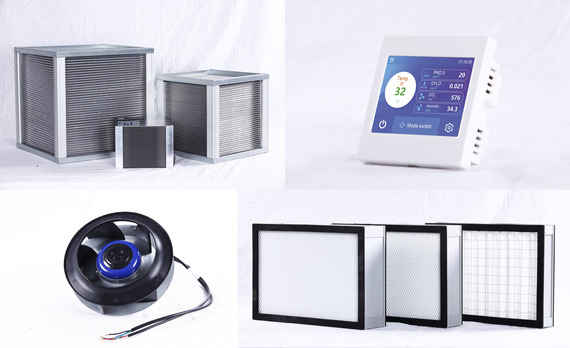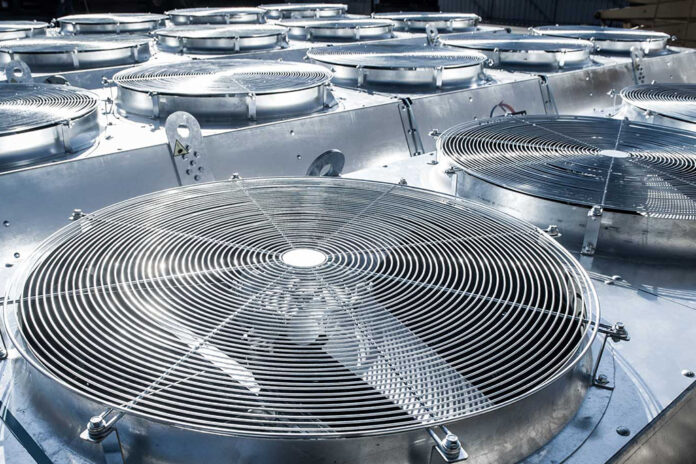Residential air exchanger is used to circulating air in your home. They’re a great way to improve the air quality of your home, which can help you sleep better and generally feel better. But what are the benefits of residential air exchangers? Here are our top five reasons why they’re worth considering:
Air Exchanger For House Is Energy Efficient
An air exchanger for house is energy efficient and can reduce energy bills. They use less energy than air conditioners, so they’re a great way to save on your accounts. They also reduce the amount of carbon dioxide you produce, which is good for the environment. Residential air exchangers have been shown to reduce carbon emissions by up to 90%!
The air exchanger for the house is cost-effective. You have to spend only $500 on it, which is quite affordable if you compare it with the other methods of cooling your home, such as ducted air conditioning systems that cost between $2000-$8000 per unit. The money you’ll save will more than cover the initial costs of getting an air exchanger installed in your home!
 Another benefit of residential air exchangers is that they are suitable investments because they last much longer than traditional cooling systems such as window fans and swamp coolers (which need to be replaced every few months).
Another benefit of residential air exchangers is that they are suitable investments because they last much longer than traditional cooling systems such as window fans and swamp coolers (which need to be replaced every few months).
Air Exchange Ventilation System Improves Indoor Air Quality
A fresh air exchange ventilation system is a simple, cost-effective way to provide your home with clean air. As well as keeping the air in your home fresh, it’s also beneficial for reducing the risk of indoor air pollution, which can impact respiratory problems such as asthma and allergies.
Air exchange systems can help to reduce the risk of mould growth by controlling moisture levels in the home. It means that dampness caused by condensation or excess humidity will be reduced considerably. It is essential if you live in an area with high humidity levels during certain times of the year, such as a coastal or tropical climate (e.g., Brisbane).
Using an effective ventilation system could also reduce fire risks within your home by ensuring adequate amounts of oxygen available at all times (especially during winter).
Fresh Air Exchange System Minimises Temperature Changes
You can keep your home cooler when you switch from fresh air to recirculated air in the summer with fresh air exchange system. It is because recirculated air will have a lower temperature than fresh air and contains moisture that evaporates when it is warmer outside. It means there won’t be as much condensation on the inside of your windows and walls, which can cause mould!
When you switch from fresh air to recirculated air in winter, you can warm your home faster because more heat comes in through doors and windows instead of being wasted through a vent system. In summer, if you have a humidifier set up in your house or apartment, it might be better to use fresh air instead of recirculated. It is because the moisture in the air will evaporate faster when fewer people are breathing it!
The air quality in your home is essential. If you are constantly breathing mouldy, stale air, it can cause a lot of problems for your health. The best way to prevent this is to use recirculated air instead of fresh air when you’re not around. It will ensure that the air in your home stays clean and fresh!
House Fresh Air System Minimises Humidity Changes
The humidity level of your house can be higher in winter than in summer. The air outside is colder, and the colder water holds more moisture. A higher humidity level can lead to mould and mildew, which can cause allergies or asthma. To reduce the humidity level in your home, use a dehumidifier.
It will pull moisture out of the air and make breathing easier. To avoid this, you must maintain a humidity level between 40% and 60%. A house fresh air system helps to keep humidity levels under control by providing fresh air throughout the home. You should also open windows in your house as often as possible and avoid using heaters that have moisture inside them. It will help to keep humidity levels down.
If you have a humidifier, you can use it to increase the humidity level. A dehumidifier works by removing moisture from the air and is an effective way to prevent mould and mildew growth. You can also use a humidifier, which adds water to the atmosphere. It will help to prevent mould and mildew growth. If you have a dehumidifier, you should run it regularly to ensure your home’s humidity level stays low.
Air exchangers for homes are also an option if you want to keep your house cool without air conditioning. They work by circulating cool or hot air throughout your home, saving up to 60% on energy bills.
Home Fresh Air Ventilation System Reduces Dust And Pollen In Home
Dust and pollen are major allergens, so keeping them out of your home is essential. A home fresh air ventilation system can help you do that.
Air exchangers draw in outside air through an inlet (usually located on a wall or ceiling) and pass it through a heat exchanger before sending it into the house through ducts. This process removes dust particles, smoke, odours and other pollutants before they enter your home — especially helpful if you have allergies or asthma. It also helps improve indoor air quality since the fresh air coming into the house is pre-filtered for dust and pollen. The result is better health for everyone in your family!
Air exchangers are also great for mould control. Mould thrives in warm, damp environments. When you install a residential exchanger, you’re creating a constant flow of fresh air into your home — making it harder for mould to grow and spread throughout the house.
How Does A Home Ventilator Work
Fresh air exchangers are a great way to provide fresh air without paying for it.
A residential air exchange system is a series of fans and blowers that push stale indoor air out through an exhaust fan while bringing in fresh outdoor air through vents and filters.
The main components of a ventilation system include:
- An intake hood or grill (or “fresh air inlet”) on your roof or wall that takes in outside air.
- Filters that remove dust, pollen, and other contaminants from incoming fresh air before they enter the house. These filters must be changed regularly depending on how dirty they get (usually every 3-6 months). If you have pets or kids who play outside, we recommend switching them even more frequently!
- A blower motor (also known as an “exhaust fan”) located near the house’s interior walls where it can distribute the heated or cooled conditioned house back into each room evenly via ductwork mounted within ceilings/walls/floors etc., using flexible plastic tubing called “ducts” which are connected at ends with couplings called “hanger bars”.
Conclusion
The benefits of residential air exchangers vary, but the most important thing to remember is that they can save money and keep your home healthy. The best way to get started with fresh air ventilation is by contacting a local installer or contractor who can help you understand how much it will cost and how long it will take before installing an air exchange system in your home.
